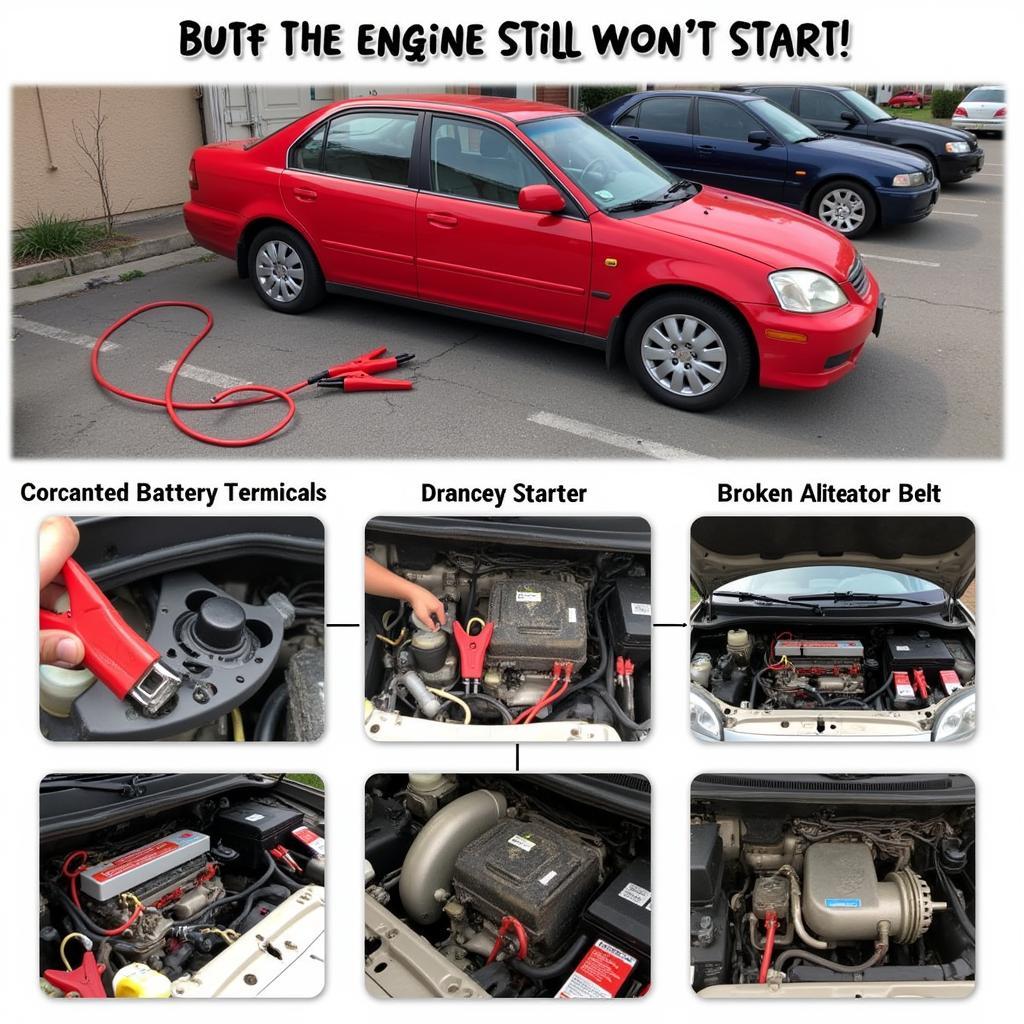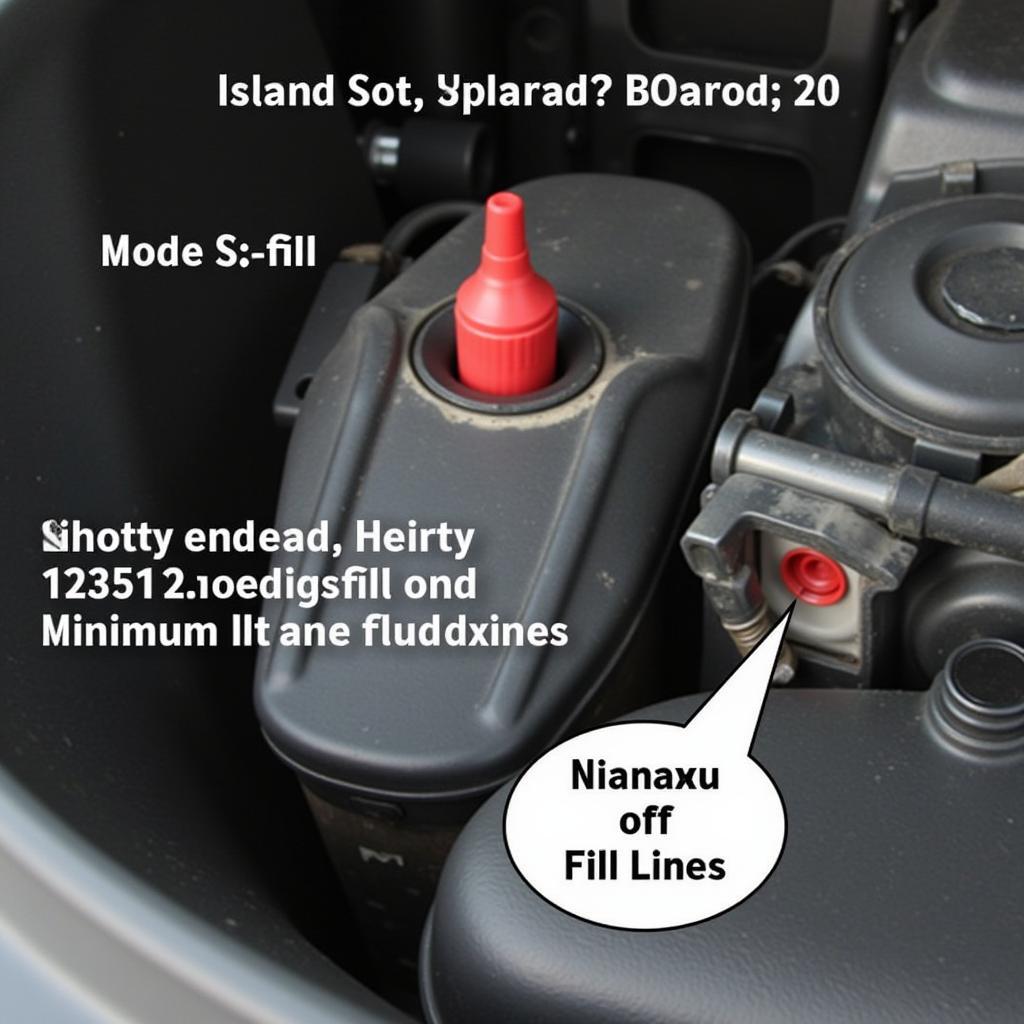The brake warning light on your 2001 Suburban is a crucial safety feature that should never be ignored. When illuminated, it signals a potential problem within your braking system that requires immediate attention. Ignoring this warning could lead to reduced braking performance or even complete brake failure, putting you and others at risk. This article will guide you through the common causes of a 2001 Suburban brake warning light and provide potential solutions to get you back on the road safely.
Understanding Your Suburban’s Brake System
Before diving into the causes, it’s helpful to understand the basics of your Suburban’s braking system. It operates on a hydraulic system, meaning it uses brake fluid pressure to activate the brakes. When you press the brake pedal, it pushes fluid through lines to calipers or wheel cylinders, forcing the brake pads to clamp down on the rotors or drums, slowing or stopping your vehicle.
Common Causes of a 2001 Suburban Brake Warning Light
Several factors can trigger the brake warning light in your 2001 Suburban. Here are some of the most common culprits:
1. Low Brake Fluid Level
One of the most frequent causes is low brake fluid. This usually indicates a leak somewhere in the system.
Solution: Check the brake fluid level in the master cylinder reservoir under the hood. If it’s low, add the correct type of brake fluid specified in your owner’s manual. However, simply adding fluid without addressing the leak is a temporary fix. It’s crucial to inspect the entire brake system for leaks, including brake lines, hoses, calipers, and wheel cylinders.
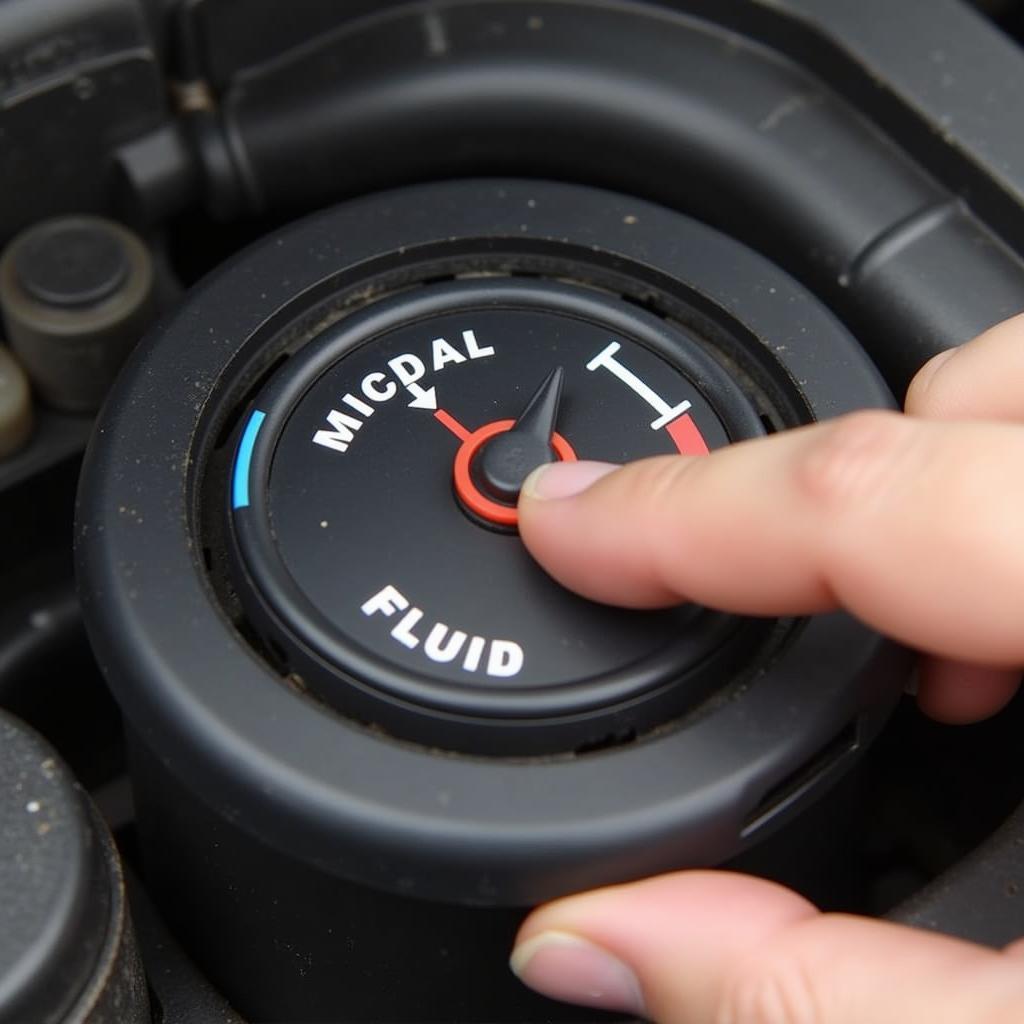 Brake Fluid Reservoir
Brake Fluid Reservoir
2. Worn Brake Pads
Brake pads are designed to wear down over time. When they get too thin, a sensor in the brake pad can trigger the warning light.
Solution: Inspect your brake pads for wear. If they are thin or worn down to the metal indicator, it’s time for a replacement. It’s recommended to replace all four brake pads at the same time for even braking performance.
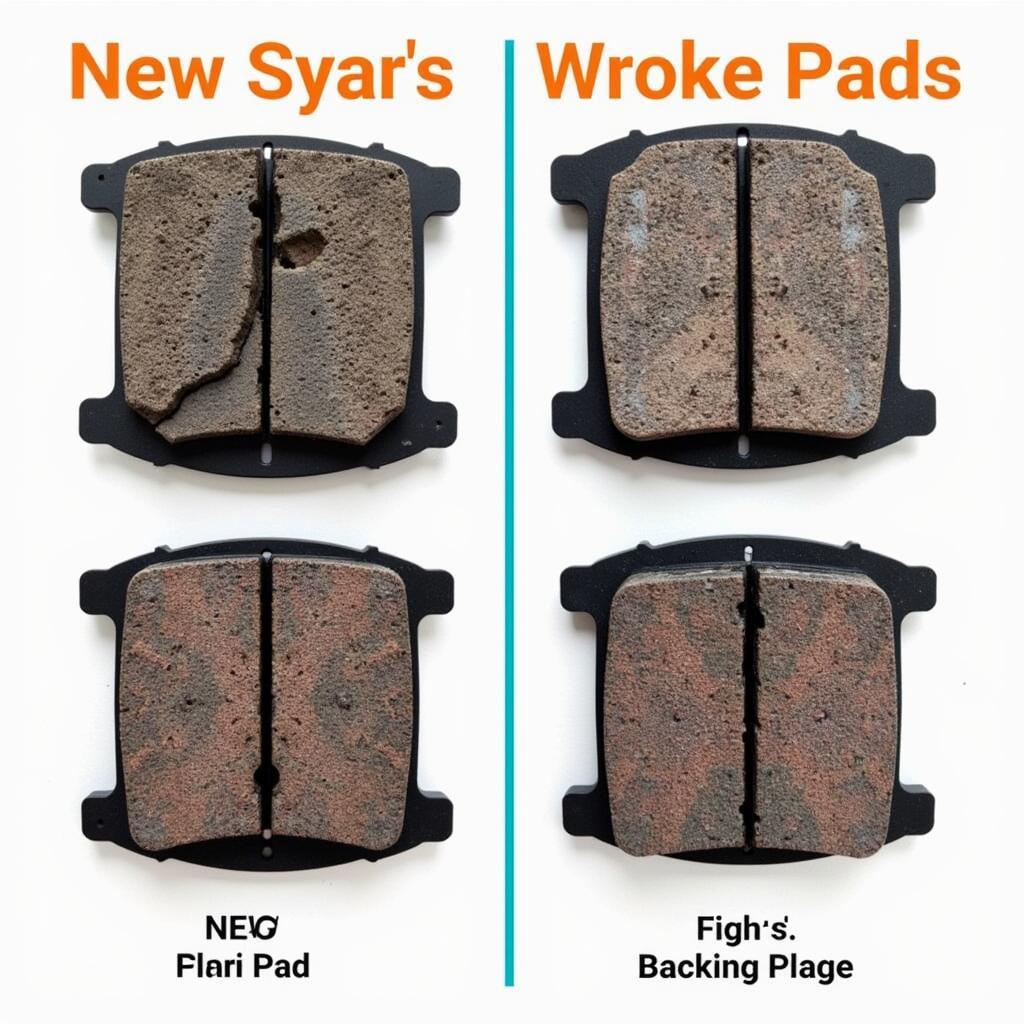 Worn Brake Pads
Worn Brake Pads
3. Faulty Brake Light Switch
The brake light switch is responsible for activating the brake lights when the pedal is pressed. It also plays a role in signaling the brake warning light. A malfunctioning switch may fail to send the proper signals.
Solution: Locate the brake light switch, typically above the brake pedal arm. Check if it’s properly adjusted and functioning correctly. If not, replacement is often the solution.
4. ABS System Malfunction
Your 2001 Suburban is equipped with an Anti-lock Braking System (ABS). If the ABS control module or a wheel speed sensor malfunctions, it can trigger the brake warning light.
Solution: Diagnosing ABS issues often requires specialized equipment. It’s best to take your Suburban to a qualified mechanic or dealership for diagnosis and repair.
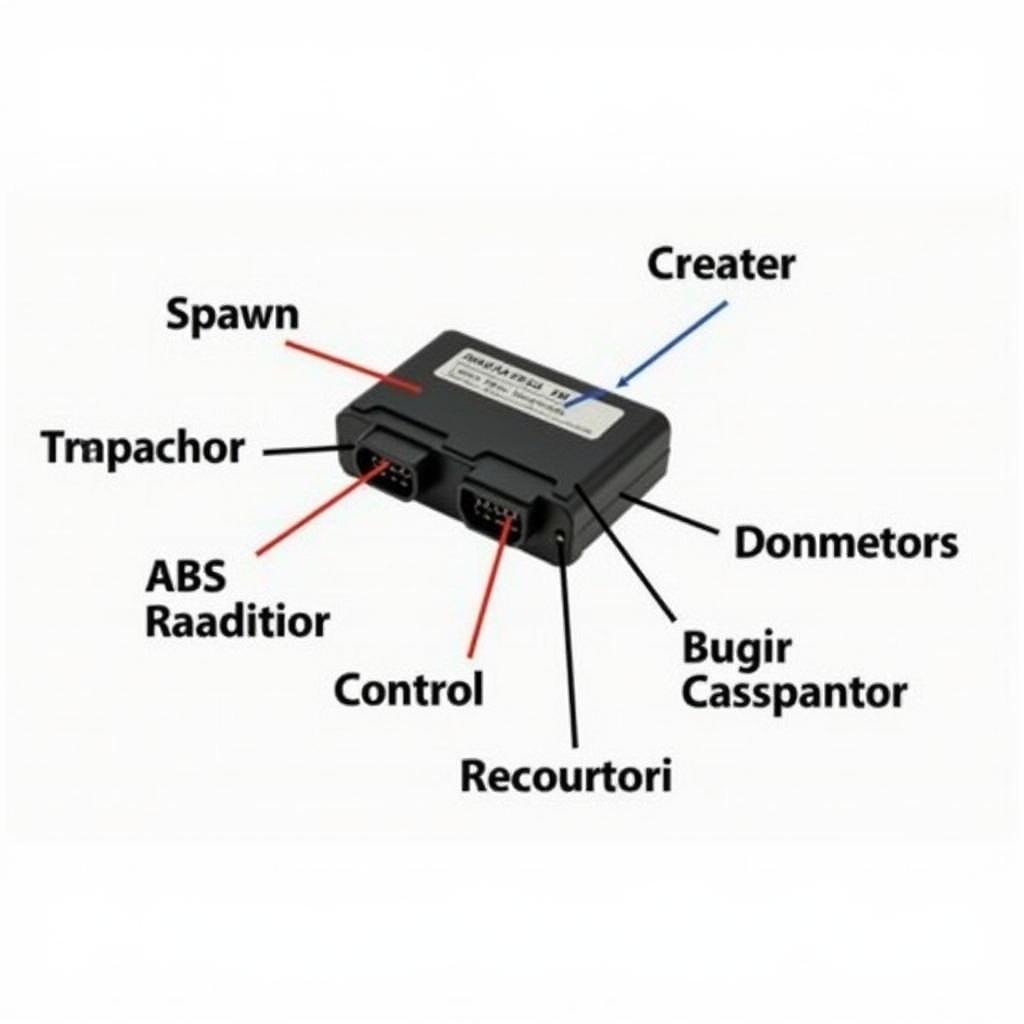 ABS Control Module
ABS Control Module
5. Parking Brake Engaged
While it might seem obvious, sometimes the parking brake can be partially engaged, triggering the warning light.
Solution: Make sure the parking brake is fully released.
Expert Insights
“Many drivers underestimate the importance of regular brake system inspections,” says John Smith, a certified automotive technician with over 20 years of experience. “A simple check of the brake fluid level and a visual inspection of the pads can prevent costly repairs and ensure your safety on the road.”
Addressing the Brake Warning Light
Ignoring the brake warning light is a serious safety risk. If the light comes on, it’s crucial to:
- Pull over safely and immediately. Do not continue driving with a potential brake issue.
- Check the brake fluid level. If it’s low, add fluid but be aware this is a temporary solution.
- Inspect for visible leaks or damage.
- If you cannot identify the issue, seek professional help.
Conclusion
A glowing brake warning light in your 2001 Suburban is a serious signal that should never be ignored. By understanding the common causes and taking appropriate action, you can ensure the safety and reliability of your vehicle’s braking system. Remember, regular maintenance and timely repairs are essential for optimal braking performance and your overall safety on the road.

